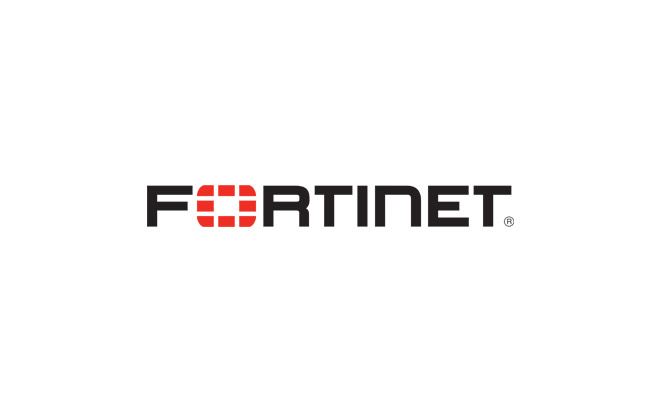.jpg)
Email is one of the most popular methods of online correspondence, especially for businesses. But most of the malware installed on compromised networks comes from email attachments. Without proper security measures, e-mail can easily become a point of entry for malicious people.
The main target of malicious users is corporate email accounting records as they can become a source of valuable business data and customer data. Introducing advanced e-mail security methods can help prevent malicious users from accessing your e-mail with access to your data and systems.
Basic email security recommendations
These essential methods of securing employees' emails can help protect your company's email records from the risks of e-mail-related cyber attacks, such as email alterations or malicious attachments.
Train your staff on cyber hygiene
Raising awareness of cybersecurity, which is often overlooked, is an important aspect of a successful cybersecurity strategy. Each employee, regardless of work experience, must undergo complex training in cyber security issues. Whether you are a large manufacturing company operating on several continents or a small business just starting out, your company could be the target of a cyber attack. It is a common misconception that small businesses are protected from cybercrime. In fact, small businesses often fall victim to cyberattacks simply because they have less chance of implementing advanced security measures, making them an easier target.
Given the ongoing threat of e-mail cybercrime, it is extremely important that your employees have a clear idea of how e-mail threats work and how they can be avoided. Employees should be taught how to act if they believe they have received a malicious or suspicious email. If a phishing email is received, employees can respond in two ways. They may open a letter that injects malware into their device, potentially causing a large-scale breach or hacking program in your company, or they may move an email to an unsolicited mail folder or IT department informing them of the dangers of sending an email. The IT department can then send an email to other employees or a reminder warning them not to open such emails.
As this example shows, comprehensive knowledge enhancement about cybersecurity can be important. But if an employee who received a malicious email does not know how to distinguish a suspicious email from a secure one, the risk of becoming a victim of a cyber attack increases significantly. Thus, cybersecurity training should teach employees to identify and mark suspicious emails. Training should be regularly updated to reflect emerging fraud tactics.
Here are some tips to increase your knowledge of cybersecurity that should be included in the training:
- Emphasize the importance of separating business and personal e-mail
- Prevent employees from checking business email from their cell phones
- Encourage employees to update their email passwords regularly
- Encourage employees to use complex unique passwords
Ensure password security
Passwords are a major line of defense against cybercrime and unauthorized access to our confidential data. But passwords are as powerful as we make them. There are several ways to provide strong and secure passwords. We recommend that you implement a password policy that employees should follow to make sure they understand what a secure password does and do not accidentally create vulnerabilities in your network.
A standard password policy should include the following:
- Change passwords regularly
- Make sure passwords are unique and not used repeatedly in multiple accounting records
- Make sure passwords do not contain general phrases or personal information (for example, birthdays, names and nicknames)
- Make sure passwords consist of at least eight characters and contain uppercase and lowercase letters, as well as characters and numbers.
- Do not encourage the exchange of passwords
- Use secure storage of passwords (for example, in advanced password encryption solutions)
Using secure passwords plays a critical role in protecting your email records and is an important method of securing your email. Implementing a password policy can help ensure password security.
Develop a cyber security plan
Password policies should be part of a broader cyber security plan. A comprehensive, well-designed cyber security plan can help your company avoid many of the threats and risks posed by networking. When designing it, make sure you take into account the threats that will be transmitted via email. It should include policies, guidelines, requirements and recommendations on how to implement and use all the technologies your business uses, including email channels.
Creating a cyber security plan is very important as even the most advanced methods of corporate email will become obsolete if your company becomes vulnerable to cyber attacks in other areas.
Use antivirus solutions
Many corporate antivirus solutions are equipped with features such as filtering mail as well as scanning files and websites. These features can help your company detect e-mail threats and reduce the likelihood of your devices and networks being hacked. We recommend that you install antivirus software to work with your mail server if possible - this will enable your antivirus solution to scan business emails and filter out malicious emails to prevent your employees from receiving them.
Introduce solutions to protect email
In addition to antivirus software, you should consider introducing other e-mail protection tools such as malware protection and e-mail protection solutions. Corporate-level email protection tools can significantly reduce the likelihood of human error compromising corporate email, as well as help you detect targeted attacks and defend against them.
Such tools are offered by all providers of information security solutions. InfoTel offers such solutions from manufacturers such as Fortinet and Sophos.
By incorporating the above corporate email protection methods for employees, you can help ensure that your e-mail corporate records are protected from the dangers posed by e-mail. But no one-size-fits-all method of email protection can help you if you work alone - to achieve reliable protection you need to use a comprehensive approach to email protection to reduce potential vulnerabilities and threats.
Vendors
If you are interested in learning more about implementing information security solutions for your company, please contactus at our office for advice.

